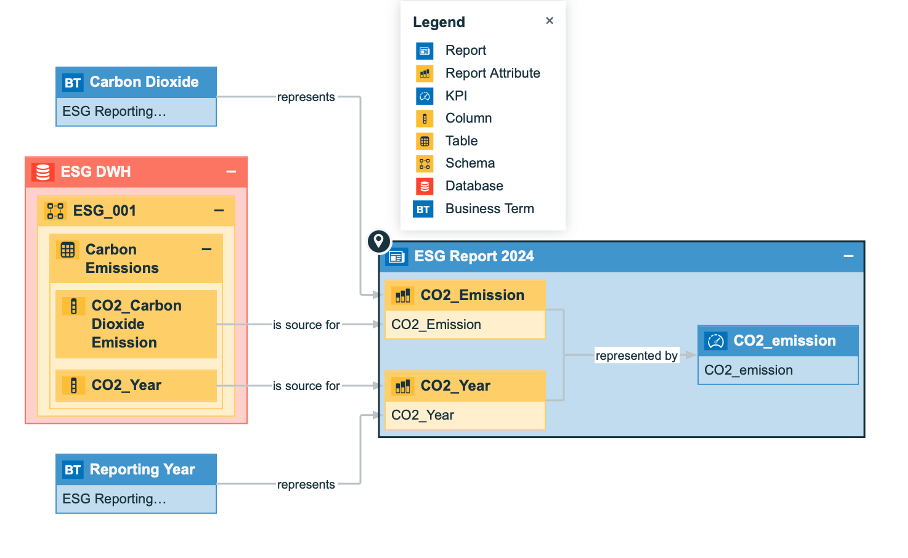CSRD Implementation
The CSRD, or Corporate Sustainability Reporting Directive, is a major regulatory development in the realm of sustainable (ESG) reporting in the European Union. To comply with the CSRD, companies will need to adapt their internal processes, enhance data collection and data management, and possibly invest in new technology and expertise. Non-compliance may result in fines or reputational damage.
The Vision of Clever Republic
For many organisations, meeting the regulatory obligations laid out by the CSRD can be a complex and daunting task. This is where we can provide a helpful hand. We believe that that our vision of connecting the dots between data, people, business terms, processes, policies & technology perfectly maps onto the requirements for a good CSRD implementation:
Data
Data includes all the information related to a company's environmental, social, and governance performance. Take for instance CO2 related data. The data might stem from different vehicles and comes via various databases all over the world to finally end up in a CSRD report. It is therefore vital that companies understand where their data is coming from and can trust the data they receive.
People
We understand that CSRD reporting is not just about data, numbers and graphs; it's about people. People, both within and outside the organisation, play a crucial role for CSRD reporting. Clever Republic can help ensure effective communication and collaboration between all these stakeholders which are key to building trust and credibility in CSRD reporting.
Business Terms
CSRD reporting can involve complex terminology and metrics that may be unfamiliar to many stakeholders. Additionally, terms may seem clear, but different people or organisations might use slightly different definitions for the same concepts. This inconsistency can lead to confusion and misinterpretation of CSRD data. To mitigate this issue, having a standardized CSRD/ESG business glossary with up-to-date business terms is essential.
Policies
(Laws & Regulations)
Technology
Processes
For correct CSRD implementation, organisations must streamline data collection processes, ensuring accuracy and completeness. Robust processes for data validation and verification are imperative to uphold the integrity of sustainability information. Clever republic can help with the integration of CSRD metrics and help map on the existing reporting frameworks & processes to ensure seamless alignment.
Connecting the dots
To ensure good ESG-reporting it is vital to connect all these dots within your organisation. We like to start small; investigating one part of the report or one data point and implement it to show the value of connecting these dots. From there we explore all other data points and involve business and stakeholders to show the value of ESG data governance.
What a CSRD Implementation could look like
We’ve thought about what business lineage of an ESG report, specifically regarding CO2 emissions, could look like. The example is implemented in Collibra. While we understand that a unique solution is required for each organisation based on their specific needs, our example can provide a glimpse of what your ESG-lineage could look like.

Get Started on Your ESG Journey
If you’re considering embarking on your ESG reporting journey, we’re here to help you governing it. ESG reporting not only benefits your organisation but also contributes to a more sustainable and responsible business world. Contact us to learn more and take the first step toward a greener and more responsible future.
